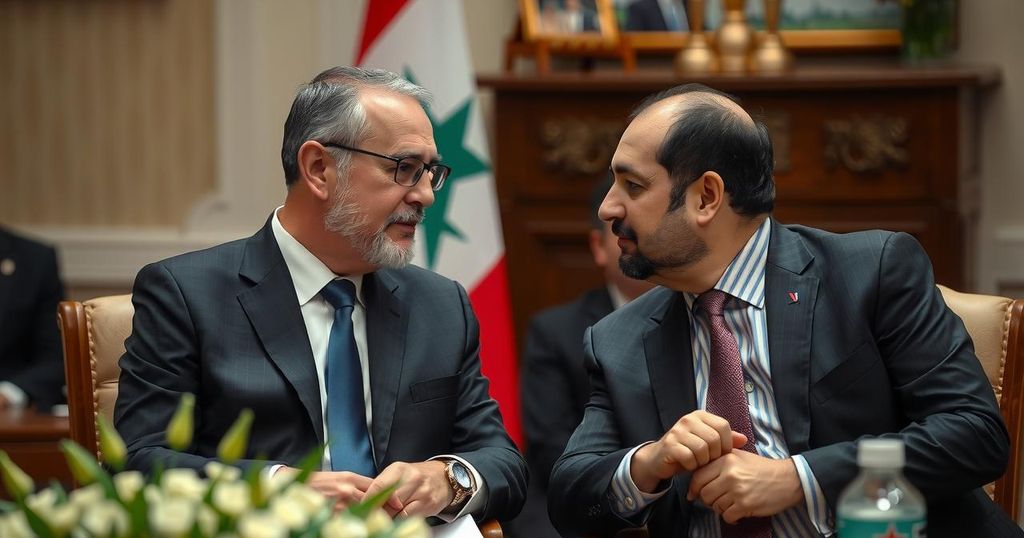Lebanon’s PM Najib Mikati visited Syria for the first time in 15 years, meeting with leader Ahmed al-Sharaa to discuss border security and smuggling. The leaders emphasized cooperation on illegal activities and the Syrian refugee crisis in Lebanon as they seek to strengthen bilateral relations. This engagement signifies a shift towards resolving past tensions and enhancing collaboration between the two neighboring countries.
On his first visit to Syria in 15 years, Lebanese Prime Minister Najib Mikati met with Syria’s de facto leader Ahmed al-Sharaa in Damascus, focusing on enhancing cooperation between the two nations. The discussions primarily centered around addressing the rampant smuggling issues along their shared border and delineating both land and maritime boundaries. Mikati emphasized the commitment of both governments to bolster border security and facilitate strategic relations directly benefiting both countries.
During the joint press conference, al-Sharaa highlighted the necessity of establishing committees to tackle the shared challenges, notably the illegal activities that have plagued the border. Mikati expressed concerns regarding smuggling that facilitated the trafficking of weapons and narcotics from Syria into Lebanon. This meeting signifies a critical juncture in Lebanese-Syrian relations, particularly in light of the geopolitical instability in the region.
Furthermore, al-Sharaa acknowledged the pressing situation of Syrian refugees in Lebanon, noting their significant impact on the country’s struggling economy. Lebanon currently shelters approximately 1.5 million Syrian refugees as a consequence of the ongoing Syrian civil war, which has lasted over a decade and resulted in severe humanitarian crises. The Lebanese President, Joseph Aoun, also made a statement highlighting the potential for meaningful dialogue between the two nations, acknowledging the historical context of Syrian influence in Lebanon.
The meeting not only aims to address contemporary issues but also reflects a desire to redefine and stabilize long-term relations between Lebanon and Syria, paving the way for strategic partnerships in various domains.
The recent meeting between Lebanese Prime Minister Najib Mikati and Syrian leader Ahmed al-Sharaa represents a significant step towards improving Lebanese-Syrian relations after years of tension. Since the withdrawal of Syrian troops from Lebanon in 2005, the two countries have navigated a complicated and often adversarial relationship. Issues such as smuggling, refugee crises, and economic challenges have persisted over time, with Lebanon hosting a large population of Syrian refugees due to the protracted civil war that began in 2011. This meeting is set against a backdrop of efforts to address these issues while exploring opportunities for collaboration.
The discussions between Lebanese Prime Minister Najib Mikati and Syrian leader Ahmed al-Sharaa mark a pivotal moment in diplomatic ties, focusing on crucial issues such as border security, smuggling, and the refugee crisis. Both leaders demonstrated a willingness to establish mechanisms for cooperation, potentially enhancing relations between the two historically intertwined nations. As Lebanon navigates its own political challenges, this dialogue could serve as a foundation for long-term strategic partnership.
Original Source: www.aljazeera.com






